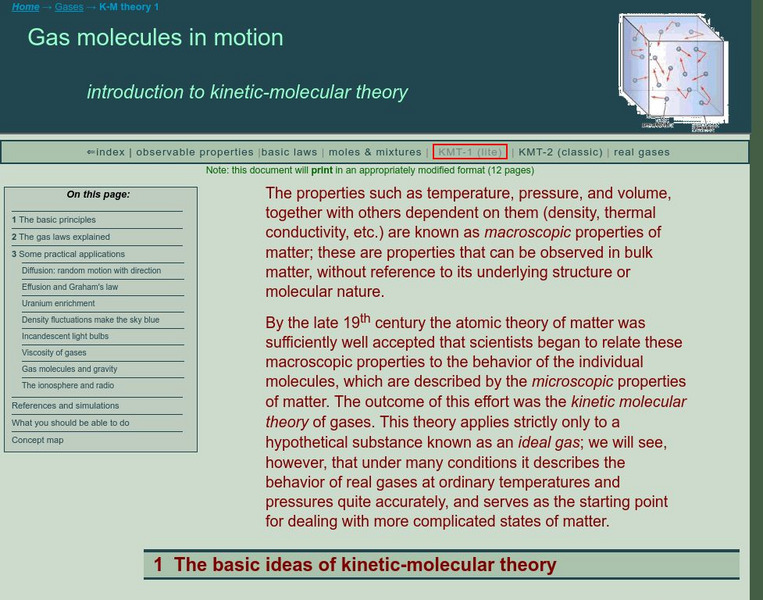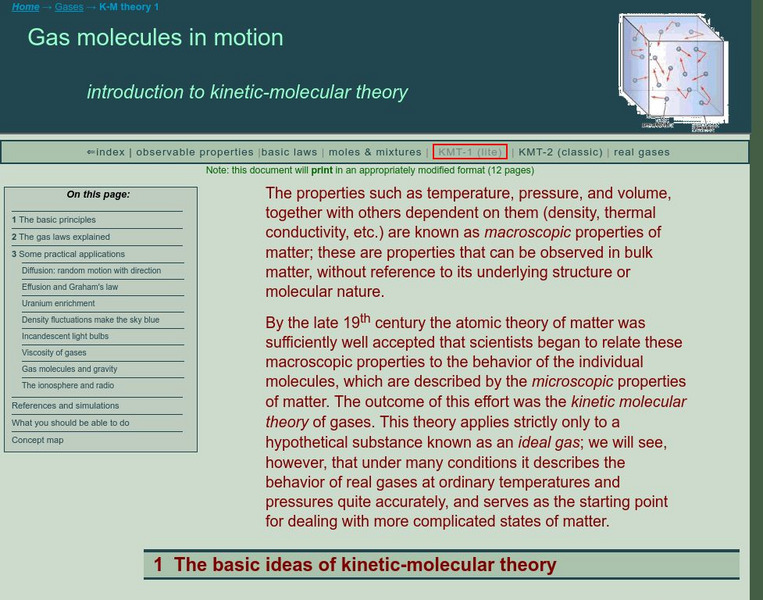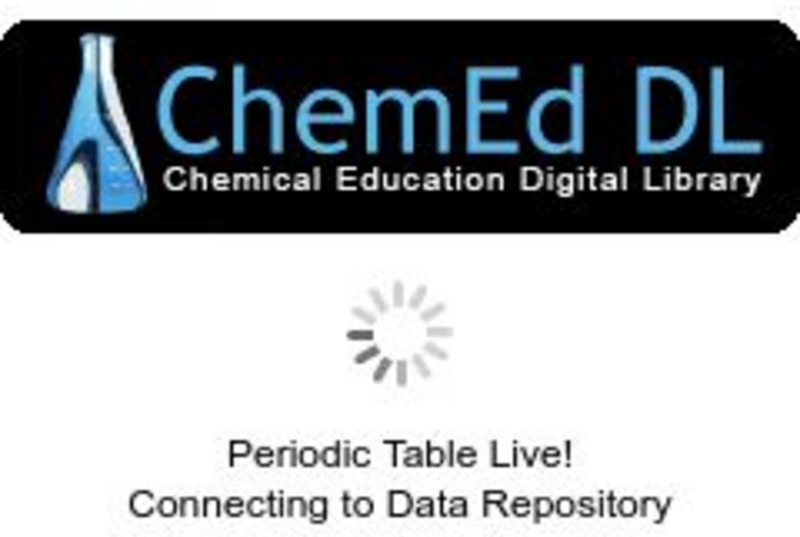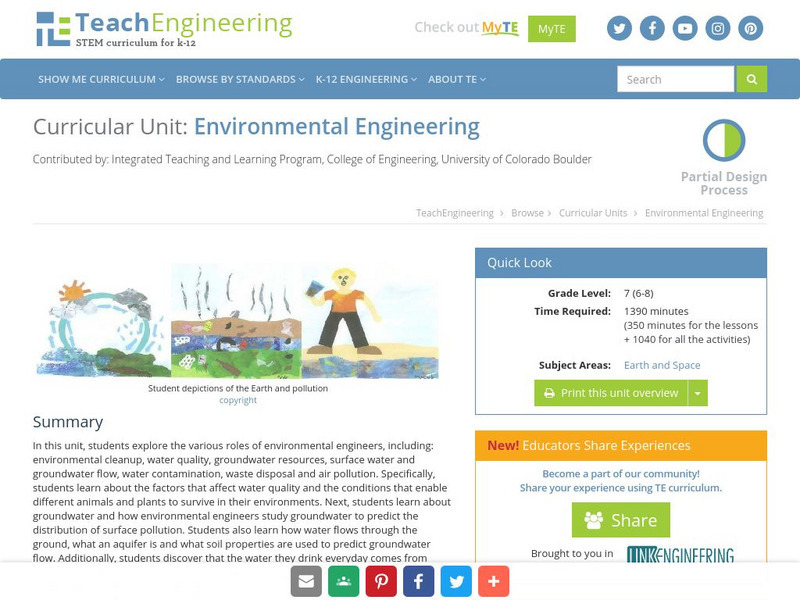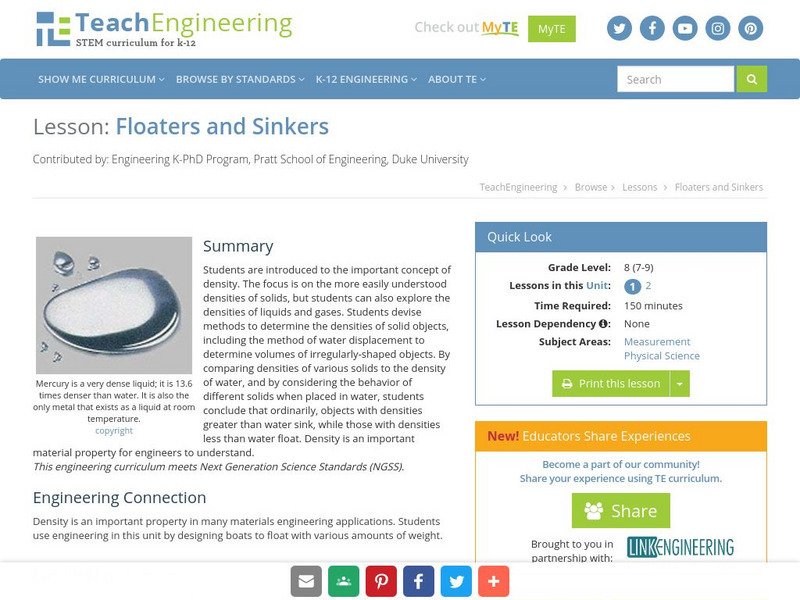Hi, what do you want to do?
BBC
Bbc: Gcse Bitesize: The Periodic Table
Elements in the same group in the periodic table have similar chemical properties. This is because their atoms have the same number of electrons in the highest occupied energy level. Group 1 elements are reactive metals called the alkali...
Simon Fraser University
Chem1 Virtual Textbook: Kinetic Molecular Model
The General Chemistry Virtual Textbook, or Chem 1, is broken into several sections covering various aspects of topics related to chemistry. This section deals with the basic components of the Kinetic-Molecular Theory in addition to...
Oklahoma State University
Oklahoma State University: Chem 1215: Periodic Table
Explains different sections of the periodic table, and how they are used.
PBS
Pbs Kids: Dragonfly Tv Do It: Carbon Dioxide
PBS site offers an experiment kids can do at home to see how carbon dioxide can put out burning candles.
TeachEngineering
Teach Engineering: Separating Mixtures
In this lesson the students will learn how to classify the materials as mixtures, elements and compounds and identify the properties of each group. Also the concept of separation of mixtures will be introduced to the students. Since...
Museum of Science
The Atom's Family: Phases of Matter
Help the Phantom choose a material and observe the changes at different temperatures in the molecule chamber. What happens to the elements or molecules as the temperature changes?
Simon Fraser University
Chem1 Virtual Textbook: Light Bulbs
The General Chemistry Virtual Textbook, or Chem 1, is broken into several sections covering various aspects of topics related to chemistry. This section deals with light bulbs and their relation to information on movement of gases and...
Other
The Science House: Floating Candles
In this experiment students observe a combustion reaction and deduce the components necessary for the reaction to occur. They also see the relationship between pressure, volume, and number of molecules for gases.
TeachEngineering
Teach Engineering: Traveling Sound
Students explore how sound waves move through liquids, solids and gases in a series of simple sound energy experiments. Understanding the properties of sound and how sound waves travel helps engineers determine the best room shape and...
Other
Chemical Education Digital Library: Periodic Table Live!
By clicking on individuals elements, users can explore a broad range of information about the element, their reactions, their properties, their structures, and their histories.
PBS
Pbs Teachers: Bottle Fountain Experiment
Demonstrate how heating expands air molecules by constructing a bottle fountain powered by air pressure.
Science Education Resource Center at Carleton College
Serc: Polymers & Plastics: Classification & Models
Students will use their prior knowledge about changes of matter including physical and chemical changes to examine and categorize various types of plastics (polymers). They will identify how their chemical properties allow them to have...
Other
Moorland School: Earth Science Zone: The Earth's Atmosphere
Learn about the properties of the thin layer of gas that surrounds the Earth. Understand the mixture of gases that make up the atmosphere as well as the different layers. Also explained are issues that affect the atmosphere like the...
Florida State University
Florida State University: Atmospheric Composition
This page deals with the composition of the earth's first atmosphere and how it has changed. Also the elements and percentages that make up our current atmosphere are listed.
ClassFlow
Class Flow: Matter 2nd Grade
[Free Registration/Login Required] Interactive flipchart teaching the states of matter for a 2nd grade classroom containing four topics with several lessons in each one. The topics covered are: matter, solids, liquids, and gases....
TeachEngineering
Teach Engineering: Environmental Engineering
In this unit, students explore the various roles of environmental engineers, including: environmental cleanup, water quality, groundwater resources, surface water and groundwater flow, water contamination, waste disposal and air...
TeachEngineering
Teach Engineering: Floaters and Sinkers
This lesson introduces learners to the important concept of density. The focus is on the more easily understood densities of solids, but students can also explore the densities of liquids and gases. Learners devise methods to determine...
TeachEngineering
Teach Engineering: Air Pollution
Students are introduced to the concept of air quality by investigating the composition, properties, atmospheric layers and everyday importance of air. They explore the sources and effects of visible and invisible air pollution. By...






